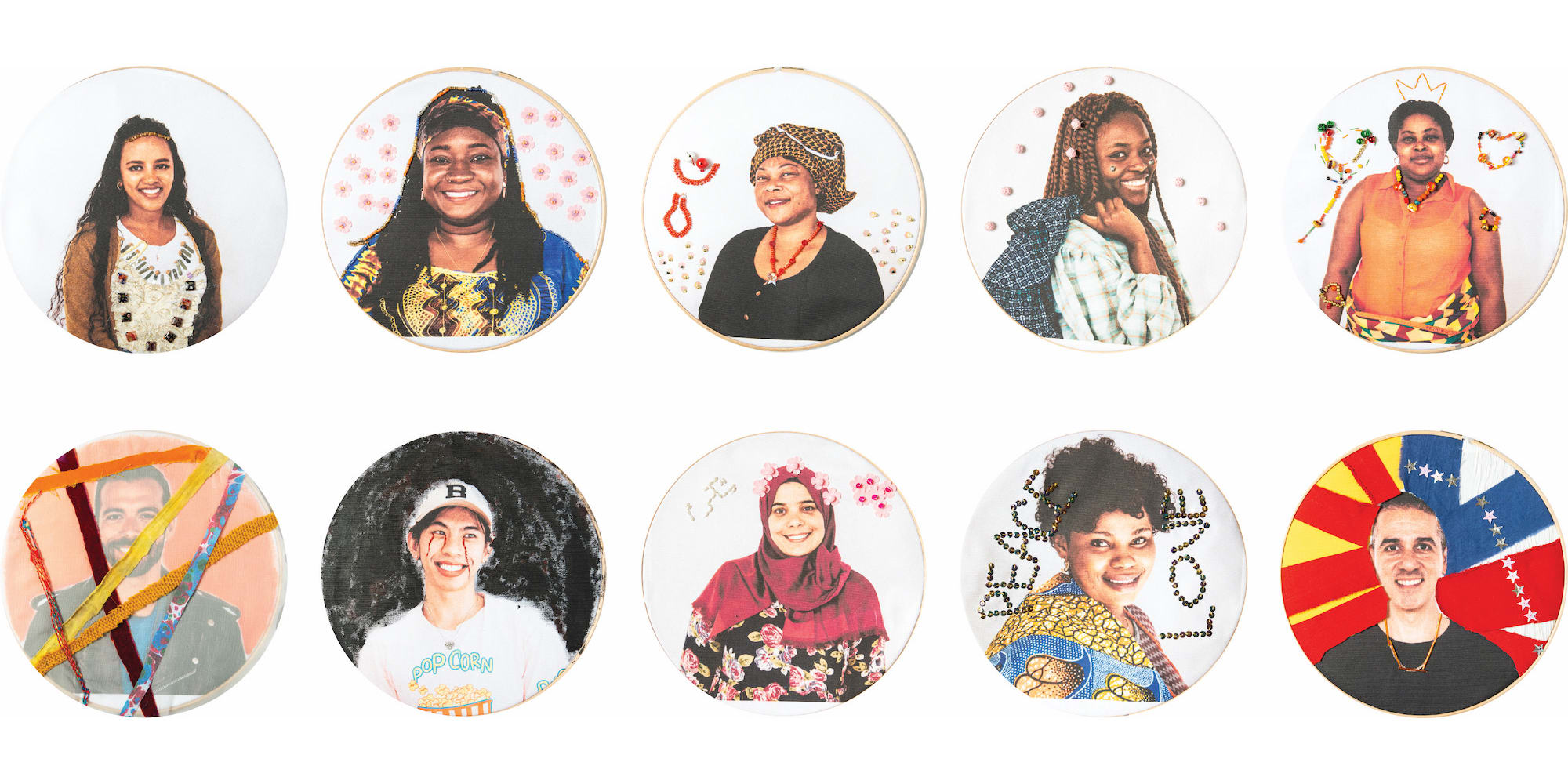Decolonising Fashion and Textiles
Project duration: 1 September 2022 – 31 August 2024
Funded by: Arts and Humanities Research Council (AHRC)
Project summary
Decolonising Fashion and Textiles – Design for Cultural Sustainability with Refugee Communities
With the mass displacement of people on the rise, it is clear that we need to rethink and address the diverse needs and aspirations of refugee communities and find ways to honour their diverse cultures.
Until now, the textile heritage of minorities has often been the object of cultural appropriation practices undertaken by fashion brands or has been systematically undervalued as ‘non-fashion’ produced by ‘the other’. As things stand, designers are often ‘parachuted’ into marginalised communities with the assumption that they can bring their knowledge and expertise to solve their problems. Instead, there is growing recognition of the need to ‘decolonise’ such dominant approaches. With this in mind, this project aims to develop a framework for decolonised design practice by advancing a cultural sustainability agenda within a fashion and textiles industry context. To meet this aim, participatory practice research will be undertaken with London-based refugees and asylum seekers who, despite their traumatic journeys, retain their original culture, customs, and faiths, as well as a variety of invaluable craft heritage skills.
This research intends to fill a gap in knowledge through its focus on eliciting what refugees and the reality of their heritage and experiences can tell us in terms of cultural sustainability, community resilience, and social entrepreneurship. Therefore, this investigation proposes an embedded and situated approach to designing, which rebalances power dynamics, and diversifies and widens the fashion system, whilst leveraging the values of sustainability and resilience.
Project team
- Dr Francesco Mazzarella (Principal Investigator)
- Professor Lucy Orta (Co-Investigator)
- Dr Seher Mirza (Post-Doctoral Research Fellow)
- Nicole Zisman (Project Administrator)
- David Betteridge (Filmmaker)
- Camilla Palestra (Curatorial Associate)
- Alisa Ruzavina (Fashion and Textile Designer and Maker)
- JC Candanedo (Photographer)
Advisory board:
- Dr Cory Rodgers (Senior Research Fellow at the Refugee Studies Centre, University of Oxford)
- Professor Helen Storey (Professor of Fashion and Science at UAL)
- Professor Stuart Walker (Professor Emeritus at Imagination, Lancaster University)
- Dr Erica de Greef (Co-founder of the African Fashion Research Institute)
- Almir Koldzic (Director of Counterpoints Arts)
- Nadja Romain (Founder of Everything I Want)
Project aims
The project aims to develop a framework for decolonised design practice by advancing a cultural sustainability agenda within a fashion and textile industry context.
This overarching aim will be addressed through the following objectives:
- To scope the project together with the participating communities in relation to the reality and lived experience of resilience of refugees and inform the subsequent process of reciprocal making and learning;
- To collect oral histories of refugee communities especially in relation to their cultural heritage and collectively outline visions for a sustainable future;
- To co-design fashion and textile artefacts grounded in the cultural heritage of the participants, as well as social entrepreneurship models to enhance the resilience of refugee communities;
- To outline recommendations for positive policy change to overcome some of the barriers that refugees face;
- To write up the findings from the research and conduct dissemination activities to amplify the impacts of the project.
Approach
Participatory action research will be undertaken with refugees and asylum seekers living in East London, adopting an embedded and situated approach to designing.
Following ethnographic research, the project team will facilitate storytelling sessions and co-creation workshops aimed at understanding the reality of refugees, mapping out ways to build resilience within the local community, and collectively framing a vision for a sustainable future.
The participants will engage in a series of workshops to co-design fashion and textile artefacts grounded on their cultural heritage, and outline a social enterprise model to enhance the resilience of refugees. The project will also include advocacy work aimed at outlining recommendations for positive policy change, to overcome some of the barriers that refugees face. Dissemination activities will be conducted throughout the project to amplify its impacts.
Partners
- Victoria and Albert Museum (V&A)
- London Borough of Waltham Forest (LBWF)
- London Borough of Tower Hamlets (LBTH)
- London Borough of Newham (LBN)
- Arbeit Project Ltd
- Poplar HARCA
- Bow Arts
In collaboration with
Related links
- Find out more about Decolonising Fashion and Textiles



